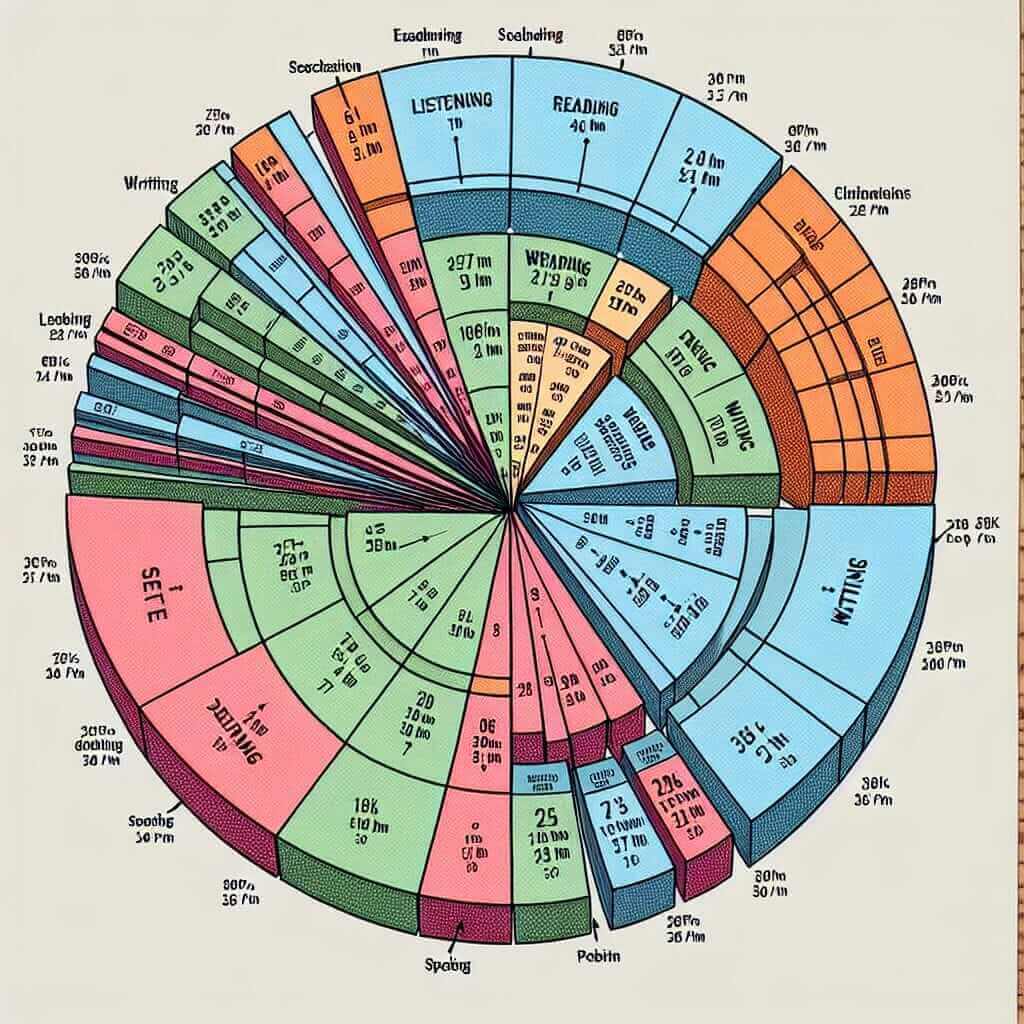As an IELTS instructor with over 20 years of experience, I understand the anxieties surrounding this crucial test. A common question I encounter is, “How long does the full IELTS exam take?” Understanding the exam’s time structure can be key to effective preparation and, ultimately, achieving your desired band score.
Let’s break down the IELTS exam duration and provide you with tips to manage your time effectively.
IELTS Test Duration: A Breakdown
The IELTS exam consists of four sections: Listening, Reading, Writing, and Speaking. While the Speaking test can be scheduled separately, the Listening, Reading, and Writing components are always taken on the same day, without any breaks. Here’s a detailed look at the duration of each section:
1. Listening:
- Duration: 30 minutes (plus 10 minutes to transfer answers)
- Number of Sections: 4
- Format: A variety of recordings, including conversations and monologues.
2. Reading:
- Duration: 60 minutes
- Number of Sections: 3
- Format: A variety of texts from books, magazines, journals, and newspapers.
3. Writing:
- Duration: 60 minutes
- Number of Tasks: 2
- Format: Task 1 (150 words minimum) involves describing data presented in a graph, chart, or diagram. Task 2 (250 words minimum) is an essay based on a given topic.
4. Speaking:
- Duration: 11-14 minutes
- Number of Parts: 3
- Format: A face-to-face interview with an examiner, including an introduction, individual long turn, and a two-way discussion.
Total IELTS Test Time:
In total, the IELTS exam takes approximately 2 hours and 45 minutes to complete. This includes the time for the Listening, Reading, and Writing tests. However, factoring in registration, identity verification, instructions, and the Speaking test (which can be on the same day or a week before or after), you should set aside an entire morning or afternoon for your IELTS exam.
 IELTS Exam Structure
IELTS Exam Structure
Time Management Tips:
- Practice under timed conditions: Familiarize yourself with the time limits of each section by practicing with sample tests.
- Develop a pacing strategy: Learn to allocate time wisely within each section to avoid rushing towards the end.
- Read instructions carefully: Misinterpreting instructions can cost you valuable time.
- Don’t get stuck: If you encounter a challenging question, move on and return to it later if time allows.
Conclusion:
Understanding the IELTS exam format and time constraints is crucial for effective preparation. By familiarizing yourself with the test structure and practicing time management techniques, you can approach the exam with confidence and optimize your performance. Remember, consistent practice is key to achieving your desired band score. Good luck!


